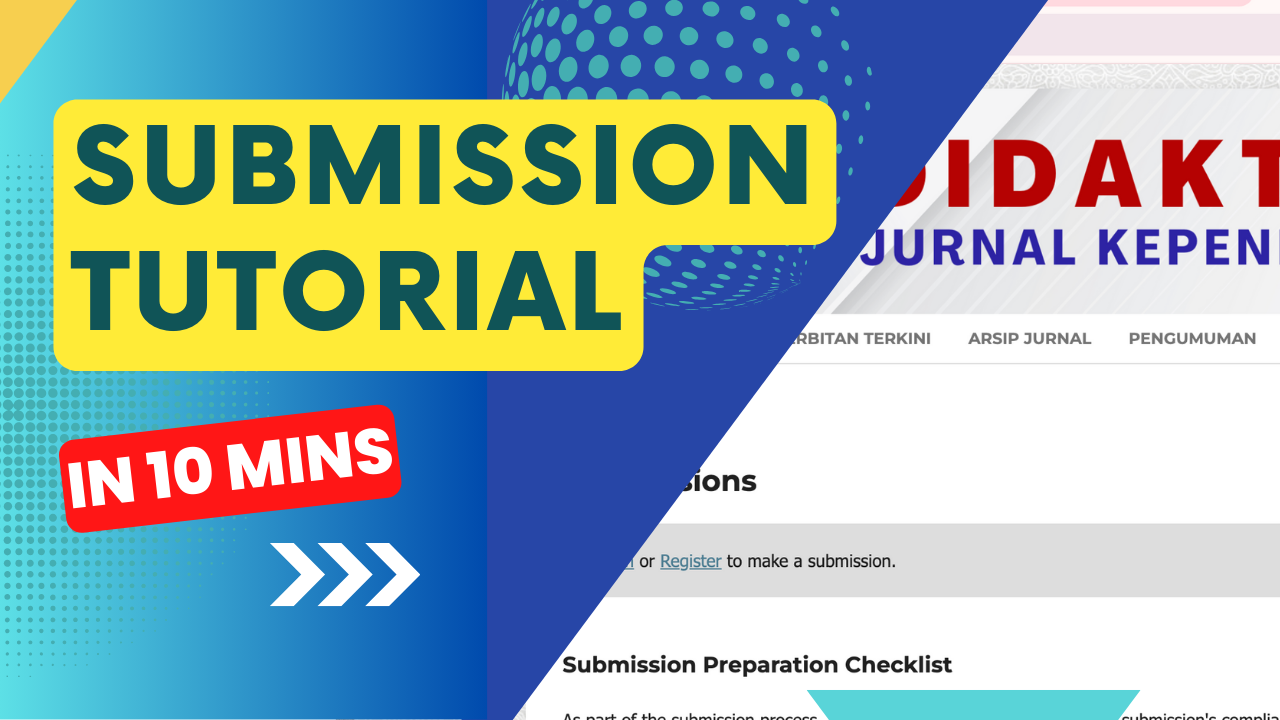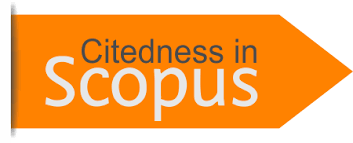Teachers’ Perception On Project Based Learning Method In Teaching English Lesson
Abstract
This research investigates how English teachers at Budi Satrya School view project-based learning. The strategy used in this study to gather data from interviews is qualitative. Next, information was gathered to determine how Budi Satrya School teachers felt about Project Based Learning. The findings demonstrate that the Budi Satrya School students benefited from the teachers' application of project-based learning. Additionally, according to this research, children become self-regulated, motivated, cooperative, critical, and communicative learners when they interact with the actual world. Project-based learning has greater beneficial effects than traditional teaching techniques. Project-Based Learning has many benefits over traditional teaching methods, even though it cannot be used with all selected materials.
Metrics
References
Baran, M., Maskan, A., & Yasar, S. (2018). Learning physics through project-based learning game techniques. International Journal of Instruction, 11(2), 221–234. https://doi.org/10.12973/iji.2018.11215a
Chen, C. H., & Yong, Y. C. (2019). Revisiting the effects of project-based learning on students’ academic achievement: A meta-analysis investigating moderators. Educational Research Review, 26, 71–81. https://doi.org/10.1016/j.edurev.2018.11.001
Chmelárová & Pasiar, (2017). The level of student's creativity and their attitude to the project-based learning, Vol. 10, 1
Daulay, S. H., Ramadhan, A., & Wahyuni, S. (2023). Quizizz Application in Students Learning Outcomes: Teacher’s and Students’ Perception. Modality Journal: International Journal of Linguistics and Literature, 3(2), 125-133.
Faradilla, A., & Daulay, S. H. (2023). Exploring Teachers’ Perception About Rosetta Stone As A Reading Teaching Media for Young Learner. Ethical Lingua: Journal of Language Teaching and Literature, 10(2).
Greenier, V. T. (2020). The 10Cs of project-based learning TESOL curriculum. Innovation in Language Learning and Teaching, 14(1), 27–36. https://doi.org/10.1080/17501229.2018.1473405
Halimatusyadiyah, N., Anasya, S. W., & Pajri, A. (2022). The Effectiveness Of The Project Based Learning Model In The (Vol. 6). Jambil, Jambi: Jurnal Kewarganaegaraan
Hasani, A., Hendrayana, A., & Senjaya, A. (2017). Using project-based learning in writing an educational article: An experience report. Universal Journal of Educational Research, 5(6), 960–964.
Irawati., L. (2015). Applying cultural project based learning to develop students’ academic writing. Dinamika Ilmu, 15(1), 25–33.
Ismuwardani, Z., Nuryatin, A., & Doyin, M. (2019). Implementation of project based learning model to increased creativity and self-reliance of students on poetry writing skills. Journal of Primary Education, 8(1). https://doi.org/10.15294/JPE.V8I1.25229
Kokotsaki, D., Menzies, V., & Wiggins, A. (2016). Project-based learning: A review of the literature. Improving Schools, 19(3). https://doi.org/10.1177/1365480216659733
Krajcik, J. S., & Blumenfeld, P. C. (2006). Project-based learning (pp. 317-34). na.
Larmer, J., & Mergendoller, J. (2010). 7 essentials for project-based learning. Educational Leadership, 68(1), 34–37.
Li, D., Zhang, C., & He, Y. (2015). Project- based learning in teaching tranlslation: Students’ perceptions. The Interpreter and Translator Trainer. https://doi.org/10.1080/1750399X.2015.1010357
Markham, T. J., & Larmer, J. R. (2003). Project-based learning: A guide to standardsfocused project based learning for middle and high school teachers. Buck Institute for Education (BIE.
Moghaddas, M., & Khoshsaligheh, M. (2019). Implementing project-based learning in a Persian translation class: A mixed-methods study. Interpreter and Translator Trainer, 13(2), 190–209. https://doi.org/10.1080/1750399X.2018.156454
Nurhidayati, N., Ismail, M. Z., Machmudah, U., & Jalaludin, I. (2022). Effectiveness of Problem-Based Learning Model to Improve Listening Skills in Foreign Language Courses. Akademika, 131-142. doi:10.17576/akad-2021-91IK-12.
Pedersen & Hobye, (2020). Project-based learning and its effectiveness: evidence from Slovakia, 31, 7
Pedersen, S., & Hobye, M. (2020). Implications of assessing student-driven projects: A case study of possible challenges and an argument for reflexivity. Education Sciences, 10(1), 19. https://doi.org/10.3390/educsci10010019
Priyatni, E. T., & Asari, A. R. (2019). Project-Based Learning Paper: Learning Model To Develop 4cs (Critical and Cretaive Thinking, Collaboration and Communication Skills). Advances in Social Science, Education and Humanities Research, 335
Riswandi, D. (2018). The Implementation of Project-Based Learning to Improve Students’ Speaking Skill. International Journal of Language Teaching and Education, 2, 32-40. https://doi.org/10.22437/ijolte.v2i1.4609
Sari, A. M., Suryana, D., Bentri, A., & Ridwan, R. (2023). Efektifitas Model Project Based Learning (PjBL) dalam Implementasi Kurikulum Merdeka di Taman Kanak-Kanak. Jurnal Basicedu, 7(1), 432-440.
Trilling, B., & Fadel, C. (2019). 21st Century Skills: Learning for Life in Our Times. San Francisco, CA: John Wiley & Sons.
Yamada, H. (2021). An Implementation of project-based learning in an EFL context: Japanese students' and teachers' perceptions regarding team learning. TESOL. doi:10.001/tesj.519.
Copyright (c) 2024 Yunda Walia Shafaa, Sholihatul Hamidah Daulay

This work is licensed under a Creative Commons Attribution 4.0 International License.
Dengan mengirimkan naskah artikel, berarti penulis setuju dengan segala kebijakan yang ditetapkan oleh jurnal dan penerbit.
Penulis menyatakan bahwa:
- kebijakan ini telah diketahui dan disetujui bersama oleh semua penulis;
- naskah artikel belum dipublikasikan secara resmi sebelumnya di media ber-ISSN atau ber-ISBN yang terdaftar, kecuali dalam bentuk abstrak atau sebagai bagian dari materi kuliah, atau skripsi/tesis/disertasi yang tidak diterbitkan;
- naskah tidak sedang dalam proses editorial dan dipertimbangkan untuk publikasi di tempat lain;
- publikasi naskah ini telah disetujui oleh semua penulis, institusi afiliasi penulis, otoritas yang bertanggung jawab, dan lembaga di mana kegiatan telah dilakukan;
- naskah berisi materi yang aman dari pelanggaran hak cipta;
Perjanjian Hak Cipta dan Lisensi
- Penulis memiliki hak cipta dan hak kepemilikan lainnya yang terkait dengan artikel.
- Penulis memiliki hak dan diizinkan untuk menggunakan substansi artikel untuk karya-karya penulis berikutnya, termasuk untuk keperluan bahan/materi kuliah dan buku.
- Penulis menyerahkan hak publikasi pertama kepada jurnal dengan di bawah Lisensi Creative Commons (CC BY 4.0).
Pernyataan Lisensi CC BY 4.0
Anda diperbolehkan:
- Berbagi — menyalin dan menyebarluaskan kembali materi ini dalam bentuk atau format apapun;
- Adaptasi — menggubah, mengubah, dan membuat turunan dari materi ini untuk kepentingan apapun, termasuk kepentingan komersial.
Pemberi lisensi tidak dapat mencabut ketentuan di atas sepanjang Anda mematuhi ketentuan lisensi berikut ini.
- Atribusi — Anda harus mencantumkan nama yang sesuai, mencantumkan tautan terhadap lisensi, dan menyatakan bahwa telah ada perubahan yang dilakukan. Anda dapat melakukan hal ini dengan cara yang sesuai, namun tidak mengisyaratkan bahwa pemberi lisensi mendukung Anda atau penggunaan Anda.
- Tidak ada pembatasan tambahan — Anda tidak dapat menggunakan ketentuan hukum atau sarana kontrol teknologi yang secara hukum membatasi orang lain untuk melakukan hal-hal yang diizinkan lisensi ini.





.png)








